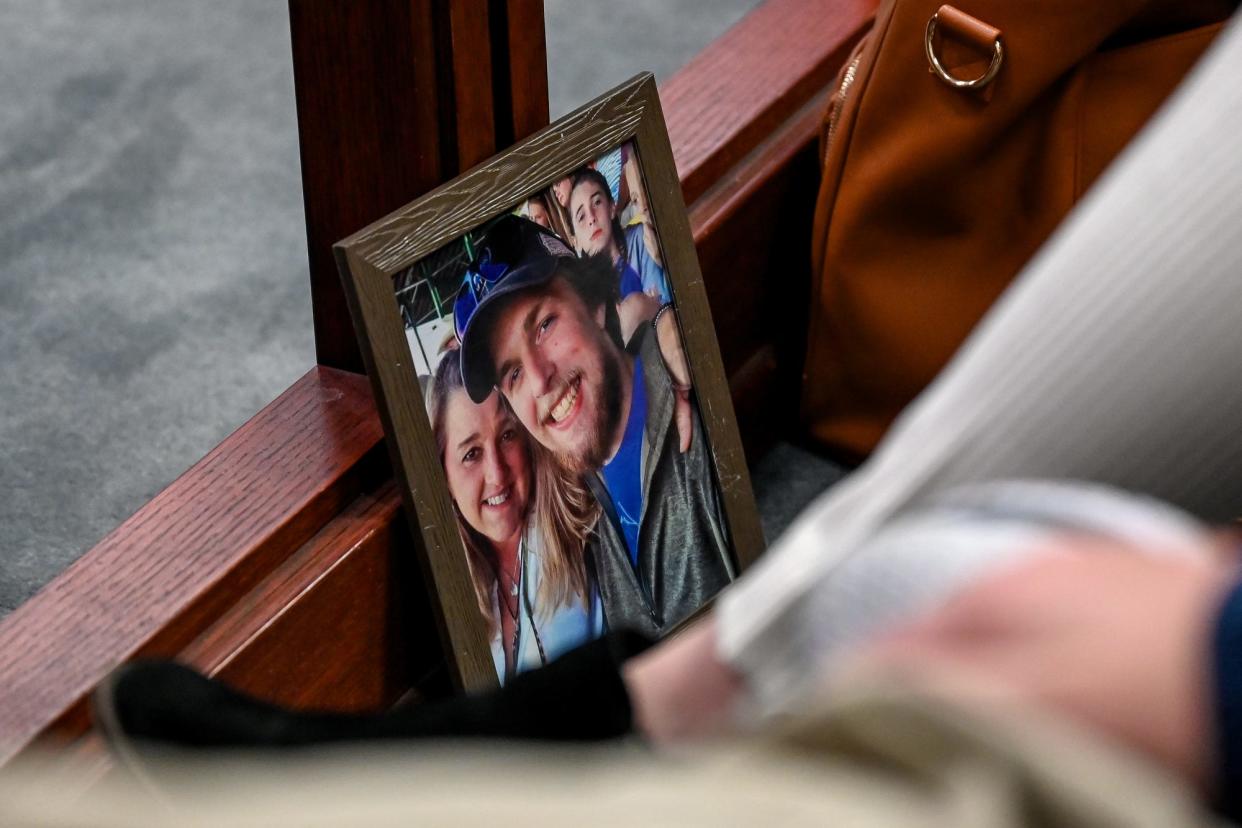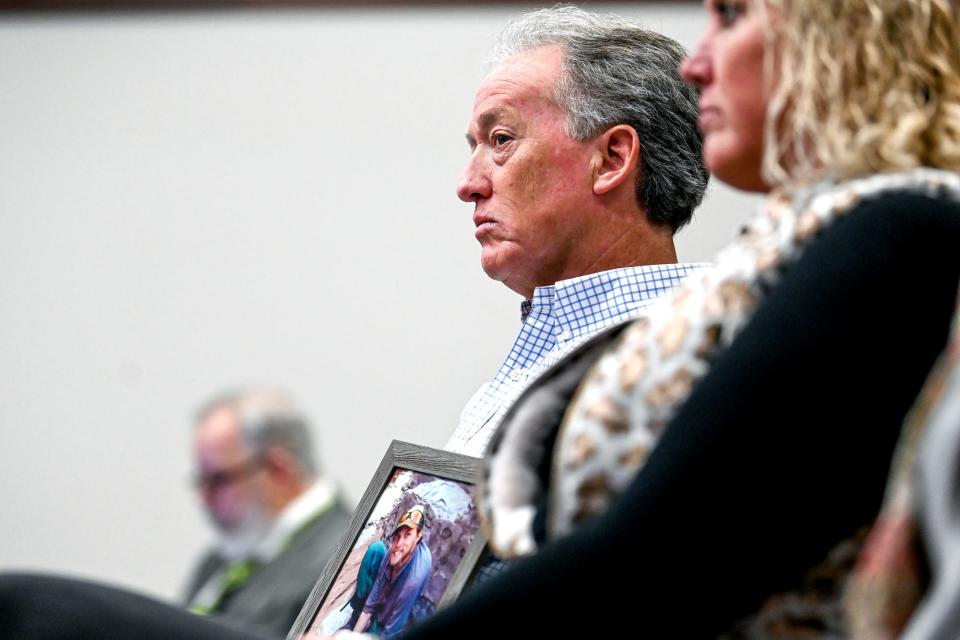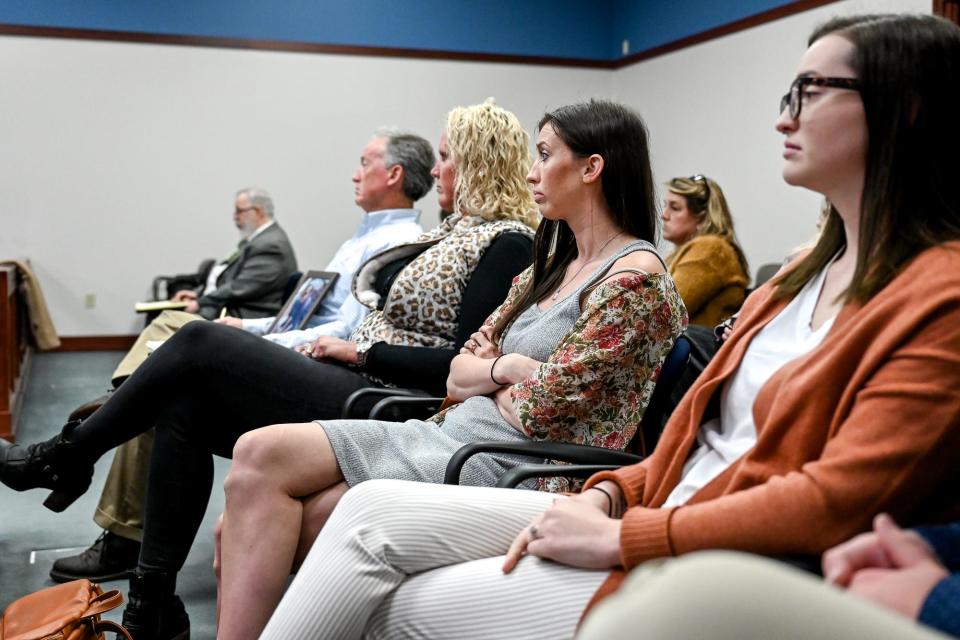Ingham prosecutors now charge fewer drug-induced homicide cases in the 'interest of justice'

LANSING — Joe Small died of a drug overdose.
No one disputes that.
But was the man who sold Small the drugs responsible for his death? And should he have been charged with causing Small's death?
It's a question the Ingham County Prosecutor's Office has increasingly answered with "no."
Michigan law allows for anyone who supplies certain drugs to another person resulting in their death to be charged with the crime of delivery causing death — colloquially known as "drug-induced homicide" — which is punishable by up to life in prison.
Standard drug dealing charges are punishable by no more than 30 years in prison, unless someone is dealing large amounts of drugs, like more than 1,000 grams. In that case, someone could end up serving up to life in prison.
Ingham County used to charge delivery causing death cases more often but tapered off after Prosecutor Carol Siemon introduced a policy in January 2021 that called for reducing how often the charge is used.
The Ingham County Prosecutor's Office used the charge nine times since 2017: four times in 2017, zero in 2018, two in 2019, three in 2020, zero in 2021, and none yet in 2022. Siemon took office in 2019. Five of the nine charges came during her term.
Statewide, the charge has been used about 200 times since 2017.
The Ingham policy says it's not always in the "interest of justice" to charge potential delivery causing death cases, even if elements of the crime exist.
Who killed Jody? How Michigan's justice system is grappling with the opioid crisis
From 2020: Jackson man charged with drug-induced homicide of woman found dead in Grand River
'Your profit caused his death:' Woman sentenced in drug-induced death of MSU student
Opponents of the charge say it unfairly penalizes drug users for accidental deaths rather than actual drug traffickers and it doesn't have a deterrent effect on the number of drug overdoses, according to the Ingham County policy. The National Association of Criminal Defense Lawyers said these charges often feature racial disparities in both charging and sentencing. Of Ingham County's nine charges, five are of white people and four are of Black men.
Proponents of the charge, like Drug-Induced Homicide Foundation founder Terry Almanza, say it doesn't matter who the statute penalizes as long as it is holding someone accountable for "peddling poison for profit."
Almanza, a retired Chicago police officer, created the foundation after her 18-year-old daughter died of an overdose of methylenedioxymethamphetamine (MDMA or ecstasy) in 2015. She was not happy with how the police handled her daughter's death so she decided to start an advocacy group for others in similar situations.
"It's almost like saying you're only going to go after Jeffrey Dahmer, not the people who killed just one person," Almanza said. "I don't think that should sit well with anyone, much less anyone who lost a child."
Joe Small's death
Small spiraled into his heroin addiction after his brother died by suicide in 2015, but his family thought he had straightened out before his October 2019 death, his father Tom Small said. Joe Small had gone to rehab several times and his family believed he was doing well, Tom Small said.
Even so, the family "always sort of braced for that bad news phone call of 'he's in jail' or dead," Tom Small said.
When he died, Small had three variants of fentanyl, a Xanax-like drug, marijuana and kratom in his system. The amount of fentanyl Small had in his system would be "devastating" for someone who had no experience with the drug, said George Behonick, a forensic toxicologist who testified during the trial for the man who was charged with selling Joe Small drugs.

Prosecutors charged a man with delivering or manufacturing a controlled substance in connection with Joe Small's death. They chose to not add the delivery causing death charge, but made a note in documents to indicate the drug deal led to Joe Small's death.
Tom Small said it is unfortunate politics may have played a role in the man being charged with a lower offense. Ultimately Ingham County Circuit Court Judge Clinton Canady III issued a directed verdict, meaning he did not feel prosecutors provided enough evidence to prove their case on the lower charge and dismissed it. He cannot be recharged. Because the man is no longer charged, the State Journal is not naming him.
Canady's directed verdict frustrated the family, Tom Small said, because they expected a jury to make the decision.
The pending case also had been difficult because it didn't allow the family to go through the natural grieving process and move on, Tom Small said. But they did want some justice to be served for Joe's death, he said.

Avoiding harsh sentences
Siemon said the policy tries to hold people responsible for their actions without using a heavy hand. Prosecutors consider the circumstances of each case individually.
"It is this individual look at the facts and circumstances of each case and individual accused of a crime that, we believe, creates the best opportunity for justice for victims, the public, and the defendant and enhances the credibility of the criminal legal system’s response to the more nuanced approach to drugs demanded in this day and age," Siemon wrote in an email.
Siemon said her office has been researching best practices for several years. Chris Martin, a prosecutor in the Ingham County office, wrote the new policy and was a part of a workgroup that created a toolkit for handling drug use in a way that advances public health.
If a drug deal results in someone's death, sentencing guidelines will be higher than for typical drug delivery cases, according to Ingham County's policy.
Yet that is still less harsh than a sentence for delivery causing death, which is punishable by up to life in prison.
"There have been red flags around these types of cases for as long as [Siemon] has been in office," Martin said. "I think it's safe to say we place a higher degree of scrutiny on these cases than some offices do."
Siemon's office only charges delivery causing death in the most extreme cases, including those involving "unscrupulous drug traffickers, cases involving exploitation beyond the usual parameters of the illegal drug trade, and cases with an articulable disregard for human life," according to the policy.
If someone is a friend or family member and they share drugs socially, they likely would not be charged with delivery causing death, according to the policy.
Eaton and Clinton counties do not have a policy for handling drug death cases. Clinton County Prosecutor Tony Spagnuolo said if he believes there is enough evidence to prove the case, his office will charge it.
Contact reporter Kara Berg at 517-377-1113 or kberg@lsj.com. Follow her on Twitter @karaberg95.
This article originally appeared on Lansing State Journal: Ingham County prosecutors charge less drug-induced homicide cases

